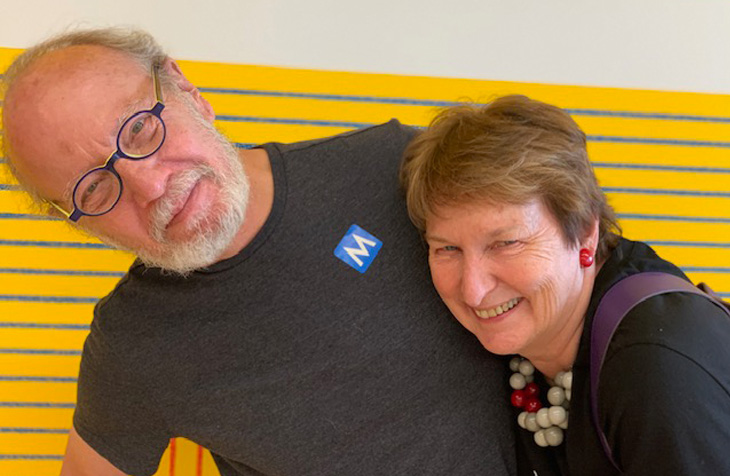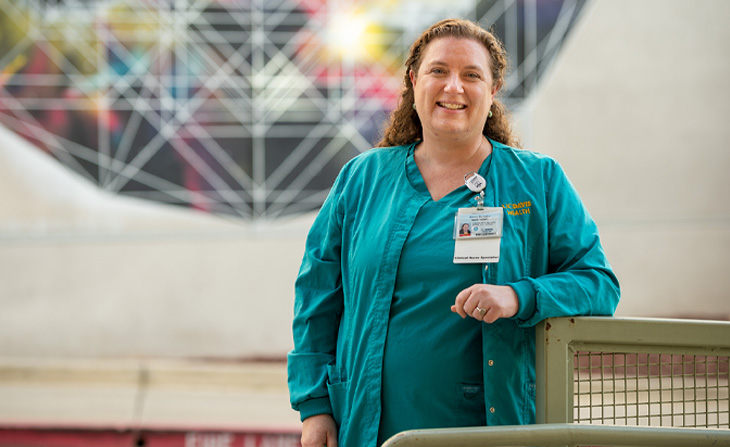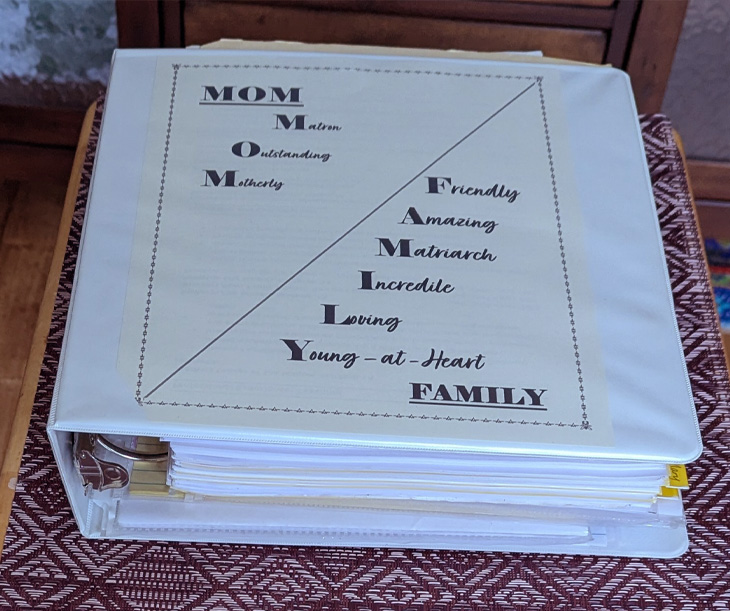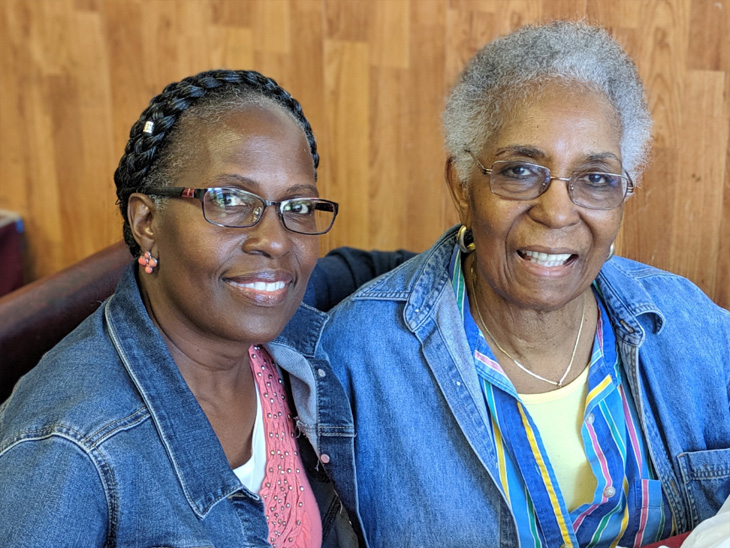Nearly one in four Americans cares for a family member. The Caregiving in the U.S. 2025 report highlights the emotional, financial and health tolls that come with it.
Joanna (she asked her last name not be used) knows those challenges all too well. Her husband's mental clarity began to blur during the COVID-19 pandemic. Today, the man she's been married to for 33 years is slowly slipping away.
"You're watching something that's happening in front of your eyes and it's unpredictable," Joanna explained. "I didn't know what to expect with Michael. So, I started reading, educating myself and reaching out to resources."

Personalized caregiving expertise
Joanna's research led her to UC Davis Health's Healthy Aging Clinic. Located in Midtown Sacramento, the clinic offers geriatric assessments, dementia care and caregiver consultations.
"Healthy Aging has been our guiding star," Joanna said.
The Caregiver Consultation service, in partnership with the Betty Irene Moore School of Nursing at UC Davis, provides personalized education and coaching to support caregivers, like Joanna.
During one-on-one sessions, a geriatric-trained advanced practice nurse helps identify challenges and create practical plans focused on communication, behavior management and hands-on care.
Anna Satake, who leads the referral-based service, says the goal is to empower caregivers to care with confidence and balance.
"Caregiving can feel isolating, but you don't have to do it alone," said Satake, a geriatric clinical nurse specialist and dementia researcher. "We help caregivers find their footing again by connecting them with resources, helping them navigate the health system and reminding them that their health and hope matter, too."

What it means to be a family caregiver today
Roughly 59 million Americans care for an impaired adult in the U.S. That's a staggering 45% increase since 2015. Most caregivers are supporting older adults with multiple chronic conditions. Many are doing so without paid help or professional support.
The role of caregiving now extends across generations, impacting young adults, mid-career professionals and retirees alike. While the role brings deep meaning to many, it also can bring fatigue, worry and a constant balancing act between caregiving, work and personal life.
Joanna juggles caring for Michael while still working as a professor at UC Davis with a heavy travel schedule.
"I'm fortunate to have paid caregivers who help. But I'm exhausted taking care of the house, the bills, the appointments, emotional care — it's everything," she admitted. "You feel responsible for everything around you and what you have to do."
For Carol Brooks, who retired in 2019 to care for her mother, the 60-hour work weeks once spent at the office are now filled with medical appointments and round-the-clock care.
"Doctors spit out a lot of information and you may remember a tenth of what they said," Brooks explained. "My mom needed someone taking copious notes and asking the right questions."

Brooks keeps a 4-inch binder filled with loads of medical information to stay on top of things for her mom, now 88 with Alzheimer's disease.
According to the Caregiving in the U.S. report, caregivers devote an average of 27 hours per week, with nearly one-quarter providing more than 40 hours, the equivalent to another full-time job. For those with limited resources, the financial strain leads to debt and lost savings opportunities. And one in five caregivers rate their health as "fair" or "poor" due to stress and fatigue.
Seeing the patient and the caregiver
"Behind every patient we see, there's often someone who's been up late managing medications, scheduling appointments and worrying in the background," said Rebecca Boxer, a geriatrician and chief of the Division of Geriatrics, Hospice and Palliative Medicine. "Caring for caregivers is part of caring for our patients and we want them to feel seen and heard."
After cycling through many providers before finding UC Davis, Carol was pleasantly floored by that approach.
"It didn't click until I was at UC Davis during a family history evaluation. As we were talking, they offered resources and for the first time, I started thinking about me," she recalled. "That was, wow! Somebody is going actually to ask me how I'm doing. I finally felt like part of the equation."
Joanna was surprised such a service even existed. Now she relies on Satake's expertise to navigate the unfamiliar.
"It's the ability to talk, to share, to check and see if what's happening with Michael is how it's supposed to be happening," she said. "Anna is engaged and thinking how to help. The clinic staff responds quickly, which makes a huge difference. The health care systems at large are not set up this way."
Questions to ask your health care team
Navigating the health care system can be challenging for caregivers. Experts recommend the best way to start is by staying organized.
- Keep current records of medications, appointments and test results in one place.
- Ask questions and speak up during visits.
- Build relationships with providers and make sure you understand every care plan before leaving an appointment.
- Don't forget to seek support from social workers, patient advocates or caregiver programs.
For Joanna, asking for help has been a lifeline.
"I know I can reach out every time and talk to someone who knows a lot more than me. It helps to know that you have that security blanket when things are unexpected or dramatically changing," she said.

For Brooks, it's been an incredible resource in addition to what she's added to her binder.
"It's opened my eyes to the fact that there are many people who are walking this journey and shown me the need to share the knowledge with others," said Brooks. Now that I'm tuned into that, I want to be the Anna for them."
For caregivers of UC Davis Health patients, you can ask your primary care physician for a referral to the Healthy Aging Clinic to benefit from this program.






